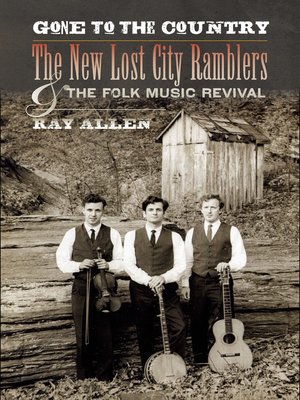
Sign up to save your library
With an OverDrive account, you can save your favorite libraries for at-a-glance information about availability. Find out more about OverDrive accounts.
Find this title in Libby, the library reading app by OverDrive.



Search for a digital library with this title
Title found at these libraries:
| Library Name | Distance |
|---|---|
| Loading... |
Ray Allen interweaves biography, history, and music criticism to follow the band from its New York roots to their involvement with the commercial folk music boom. Allen details their struggle to establish themselves amid critical debates about traditionalism brought on by their brand of folk revivalism. He explores how the Ramblers ascribed notions of cultural authenticity to certain musical practices and performers and how the trio served as a link between southern folk music and northern urban audiences who had little previous exposure to rural roots styles. Highlighting the role of tradition in the social upheaval of mid-century America, Gone to the Country draws on extensive interviews and personal correspondence with band members and digs deep into the Ramblers' rich trove of recordings.
| Cover Title Page Copyright Contents Acknowledgments Introduction: Reviving Tradition in Modern America 1. The Seeger Family Discovers the Folk 2. Yale Hoots and Washington Square Jams 3. The Ramblers Take the Stage, 1958-1959 4. Seeger, Cohen, and Paley Perform the Folk, 1959-1961 5. Paley Departs and Schwarz Arrives, 1961-1962 6. Seeger, Cohen, and Schwarz Perform the Folk, 1962-1964 7. Gone to the Country, 1965-1968 8. A Second Decade, 1969-1979 9. Thinking Legacy and Moving On 10. Passing for Traditional and Rethinking Folk Revivalism Discographic Notes Notes on Sources Notes Index | Received a Certificate of Merit from the Association for Recorded Sound Collections (ARSC) in the category of Best Research in Recorded Country, Ethnic or Folk Music, 2011. — Association for Recorded Sound Collections| Ray Allen is a professor of music and American studies at Brooklyn College, City University of New York. His coedited collections include Ruth Crawford Seeger's Worlds: Innovation and Tradition in Twentieth-Century American Music and other works.







